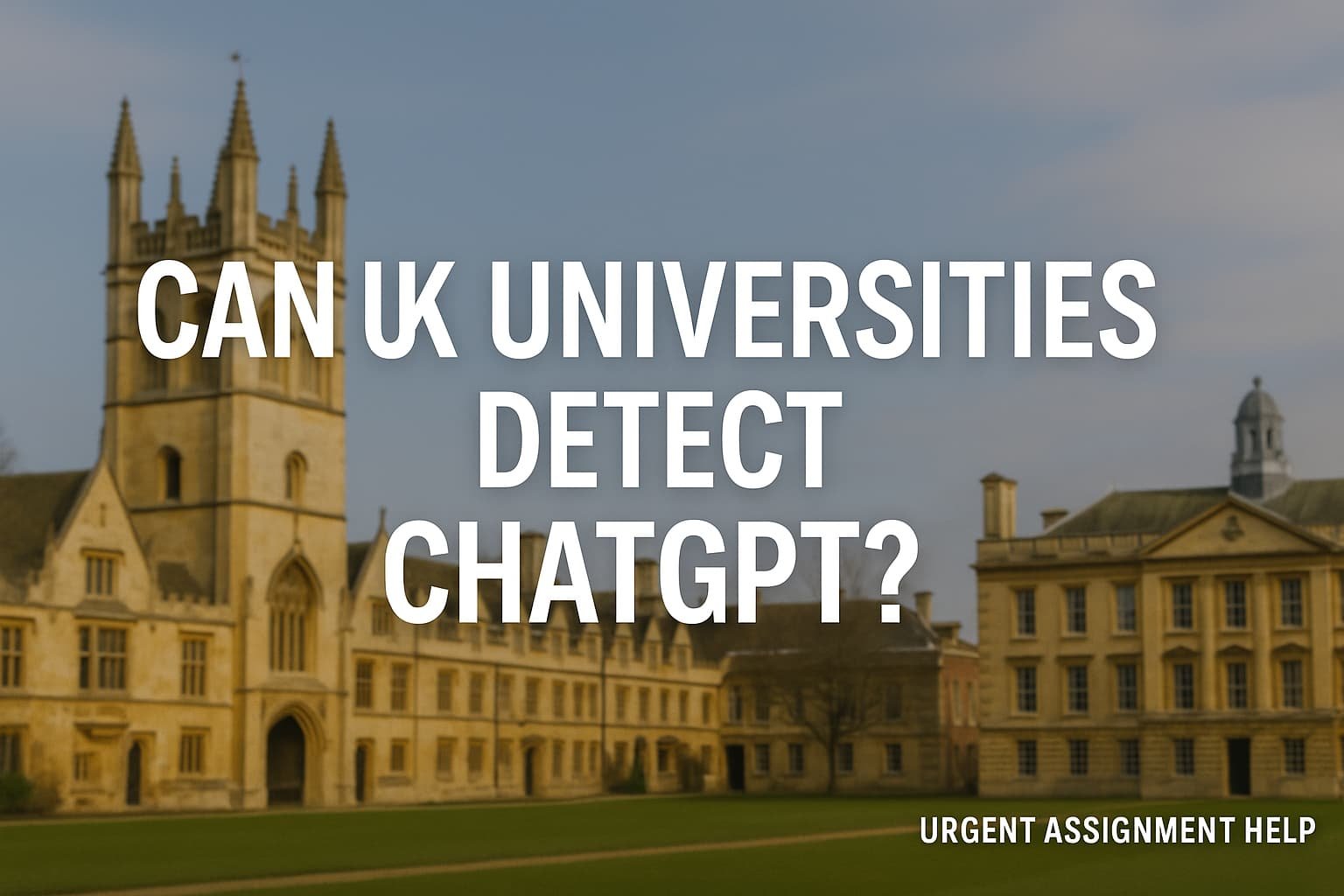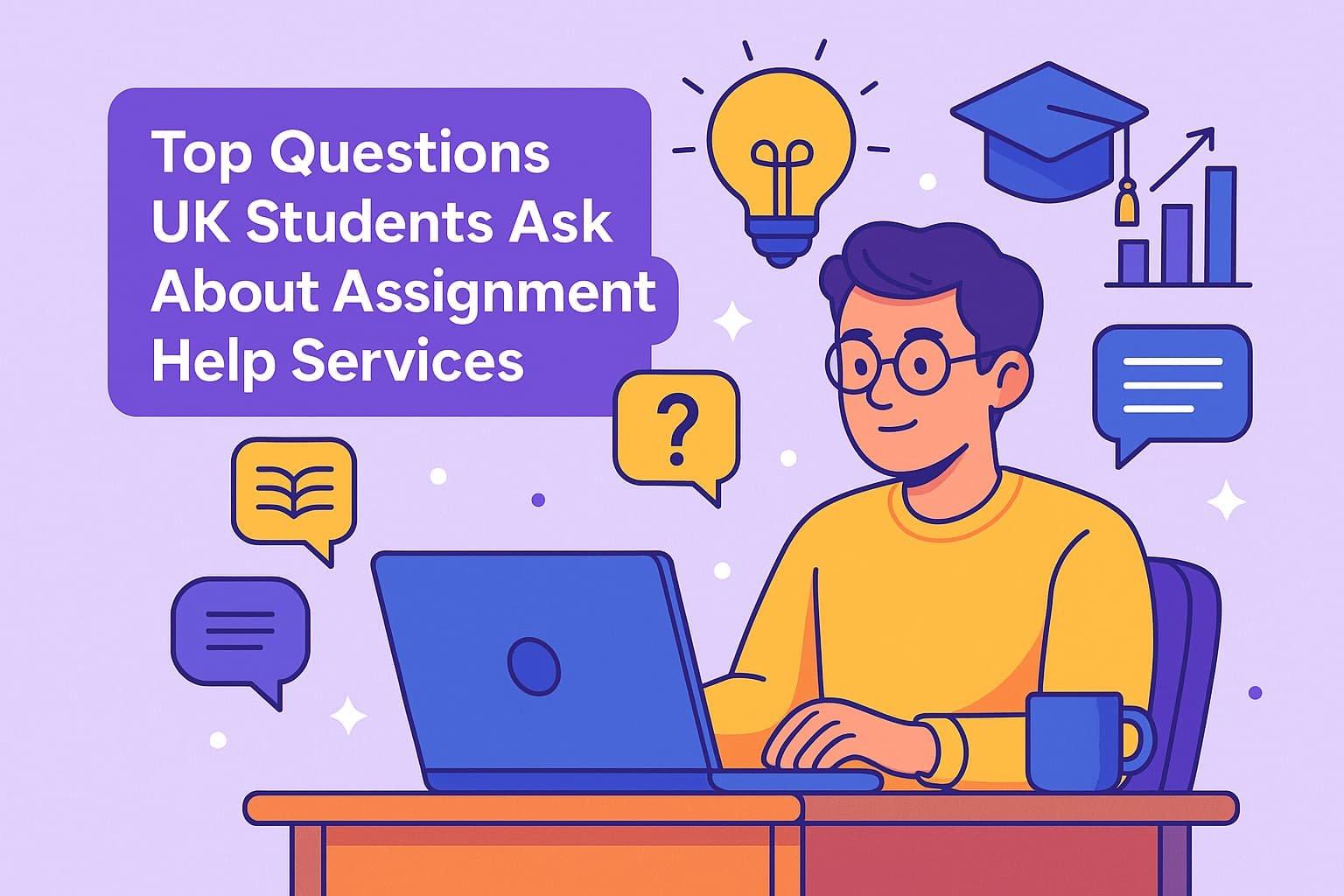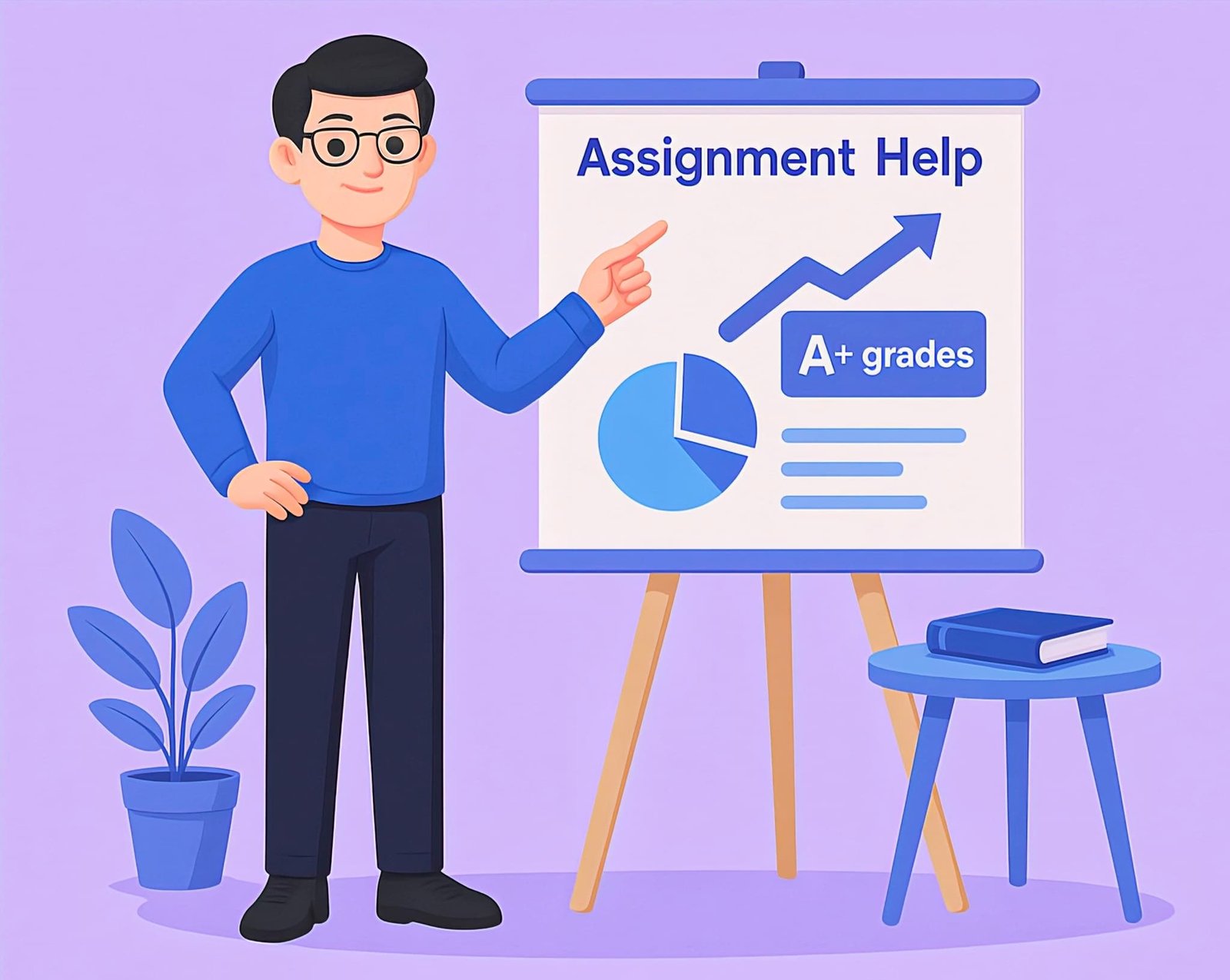Can UK Universities Detect ChatGPT? Tools, Risks & Policies 2025
This guide is written for students across the UK who want clarity, confidence, and compliance. We explain how “detection” actually works on campus, why indicators alone don’t settle cases, and how to build a visible learning trail that protects your integrity without fear. You will also find a practical, step-by-step plan, an advanced FAQ, and simple ways to get ethical support from Urgent Assignment Help.
“Can universities detect ChatGPT?” is the wrong first question. The right question is: how do universities decide whether the author is you? UK institutions don’t rely on a single red-or-green signal. They examine patterns in the writing, compare to your previous work, and—when necessary—run an academic integrity process that weighs multiple forms of evidence. Because indicators can be noisy, the final judgement is human and policy-driven. Understanding that workflow will help you build habits that both raise your grades and protect you from unfair outcomes.

- Detection is a workflow (indicators → inquiry → academic judgement), not a single scan.
- False positives exist; your draft history and notes are powerful exonerating evidence.
- Ethical, declared support is often permitted; undisclosed ghostwriting is not.
- Design changes in 2025 favour process evidence, reflective commentary and oral components.
Part 1 — What “Detection” Really Means
In everyday speech, “detection” sounds like a metal detector at an airport. Academic integrity isn’t that simple. Platforms can highlight unusual diction, abrupt tonal shifts, odd citation patterns, or improbable perfection in grammar. Tutors then compare the piece to your earlier submissions and your level of study. If concerns remain, a conduct pathway opens: you may be asked to share drafts, discuss your research process, or attend a short viva. The central idea is that authorship must be demonstrable. A submission supported by a clear documentary trail is far easier to defend than one that appears from nowhere the night before the deadline.
Common Indicators (and Why They’re Only Starting Points)
Indicators are not verdicts; they are reasons to ask questions. Repetitive cadence, generic phrasing, and shallow factual scaffolding can arise for many reasons, including time pressure or over-editing with grammar software. Likewise, unusually tidy citations may reflect careful work rather than misconduct. The danger of treating any one metric as proof is precisely why universities triangulate: they assemble a dossier of signals, documents and explanations before deciding. That is your opportunity to show your method—and to demonstrate genuine learning.
Evidence that Carries Weight in the UK
The strongest evidence is a learning trail. Save your outline and research map with dates. Keep draft files or version history in your word processor. Annotate sources with quotes you considered and those you discarded, and keep track of how sections changed after feedback. Short reflections (100–150 words) help markers see your reasoning. When these items exist, you don’t simply claim authorship—you prove it. Without them, you leave the story of your work to inference, which is where anxiety creeps in and investigations take longer than they need to.
The Authorship Defence Pack
Create a reusable folder for every assessment: 01-Outline, 02-Sources, 03-Drafts, 04-Reflection. Save time-stamped versions and a one-page reflection at the end. Zip it and store it in cloud storage tied to your student email. If you’re called to a meeting, you already have an organised narrative of your work.
Why Students Get Flagged Unfairly
Flags often follow rushed submissions, identical structure across modules, or polished grammar without visible drafting. These are all fixable. The solution is not to write worse, but to show your steps and build in small milestones that leave evidence behind.
Policy Patterns Across UK Universities
While each institution writes its own policy, a stable pattern has emerged by 2025: acceptable AI use (with disclosure) may include brainstorming, language clarity or accessibility support; unacceptable use includes submitting generated content as your own or bypassing independent analysis. A growing number of programmes embed authorship checks into assessment design: draft snapshots, reflective commentary, targeted case data and short oral components. The practical effect is that genuine learners have more ways to demonstrate mastery—and opportunistic shortcuts stand out quickly.
Part 2 — A Practical Strategy for 2025
You don’t need tricks; you need a routine. Start with the brief and the marking rubric. In a single page, define your research question, three claims you will test, and the sources that might help you decide between alternatives. Draft in short bursts, save versions, and narrate your decisions: why you dropped one case study, why you kept another, which counter-arguments you ruled out and why. This running commentary not only earns marks for critical reflection; it becomes the backbone of your defence if anyone questions authorship later.
Ten-Step Action Plan
- Scope: Extract verbs from the brief (analyse, evaluate, compare) to shape your structure.
- Map: Build a research map with 6–10 credible sources; note what each contributes to your claim.
- Outline: Headings and two bullet points under each. Save it with a date.
- Draft 1: Write fast in your voice; do not edit for style yet. Save a version.
- Evidence pass: Add citations, data points and page numbers. Save a version.
- Structure pass: Improve flow; add signposting and mini-conclusions.
- Clarity pass: Fix sentences and transitions; remove fluff.
- Reflection: 150 words: what changed, why, and what you would do with more time.
- Disclosure: If your module permits limited AI for planning or clarity, declare it succinctly.
- Package: Zip the lot as your authorship defence pack and keep it for the term.
Assessment Design Trends You’ll Notice
Expect tighter briefs linked to taught material, datasets that require interpretation, and prompts that ask you to defend a position in context rather than recite definitions. Oral components—short vivas, poster sessions, or mini-presentations— are increasingly common. The winners are students who track decisions, compare sources openly, and can explain trade-offs under time pressure. This style of learning is not only resilient to authorship concerns; it also mirrors professional work after graduation.
What Not to Do (and What to Do Instead)
Don’t chase “undetectable” gimmicks or paraphrasing mills. They waste time and drain the originality from your analysis. Do invest in evidence, structure and voice. If you hit a wall, get ethical help that strengthens your method rather than replacing it. At Urgent Assignment Help we can map your sources, challenge your outline, and polish your final draft—while ensuring authorship stays yours.
Advanced FAQs (SEO-Ready)
Is a high “AI score” proof of misconduct?
No. Scores are signals, not verdicts. UK practice requires policy-based reasoning, context, and your right to be heard. A solid authorship trail—outline, drafts, notes—can overturn a high indicator by showing genuine learning.
Can I declare limited AI use safely?
If your module allows it, yes. Keep it narrow (brainstorming or clarity), document how it helped, and ensure the ideas, structure and wording are yours. Place your disclosure in the cover sheet or methodology note.
What triggers unnecessary flags?
Last-minute uploads without drafts, identical templates across subjects, or perfect grammar with thin analysis. Spread work across milestones and keep dated saves so quality looks earned, not suspicious.
How should I prepare for an academic conduct meeting?
Bring your pack: outline, drafts, notes, and a short reflection. Walk through how your claim evolved, what sources you compared, and why you made key choices. Calm, specific explanations resolve most cases.
What if English isn’t my first language?
Focus on clarity and evidence. It’s fine if your voice is simple and direct. Avoid “style inflation” that doesn’t match your previous work. Consistency over time is a strong authenticity marker.
Can professional support be used ethically?
Yes—when it’s guidance, not ghostwriting. Our role is coaching: scoping, research mapping, structure, editing for clarity, and referencing checks. You remain the author and decision-maker.
Is there a guaranteed way to avoid detection?
The right aim is authenticity, not avoidance. When your analysis, sources and drafts are genuinely yours, you will have nothing to fear—even if an indicator blips at first.
How many drafts should I keep?
Keep at least three: an exploratory draft, a structured draft with citations, and a polished draft. Save with dates or use version history in your writing tool.
What’s a good 150-word reflection template?
State your question, the main counter-argument, the sources that shifted your view, and the key improvement you made between drafts. Mention any permitted tools and why you used them.
Where can I start today?
Open a folder named with the module code. Add an Outline.docx, Sources.md, Draft-1.docx. Spend 25 minutes outlining, then book a short planning session with us if you want expert feedback before writing.
Conclusion — Integrity Is a Skill You Can Practise
Detection technology will keep evolving, but the fundamentals will not change: independent reasoning, clear evidence, and a visible process. When you plan in the open and document your steps, you transform anxiety into confidence and make stronger arguments at the same time. If you want expert, UK-compliant guidance—fast and friendly—reach out to Urgent Assignment Help today.



Thanks for sharing. I read many of your blog posts, cool, your blog is very good. https://www.binance.com/lv/register?ref=SMUBFN5I
Your article helped me a lot, is there any more related content? Thanks!